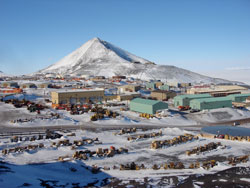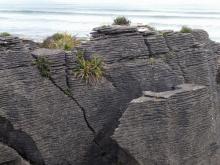Update
Now Archived: PolarConnect Event with teacher Alex Eilers and the and the research team studying Weddell Seals in Antarctica. You can access the archive of this event by visiting the PolarConnect Archives.
https://www.polartrec.com/polar-connect/archive
What Are They Doing?

The team will travel daily to Weddell seal haul out sites on the sea ice near McMurdo Station. While on location, the team will find female seals that they had handled approximately two months earlier, and recapture the females to assess changes in their health, condition and behavior over the summer months. To do so, the seals will be captured and sedated. Once sedated, the seals will be weighed and measured (length and girth), have blood and tissue samples collected, and their molt status assessed. In addition, imaging ultrasound will be used to determine if the females are pregnant, and -0 if so - the size of the fetus will be measured. They will also take thermal images of the seals to see how much heat the seal is losing to the environment. Time-depth recorders that had been deployed earlier in the summer will be recovered, and the diving and foraging behavior of the seals during the past two months examined. The team will return the next season in an attempt to relocate the seals and determine if the seals have pupped.
In addition, the team is doing range-wide surveys of all the seals in the area to determine the timing and progression of the molt (when it starts, how long it lasts). During each survey the molt status of all seals seen is recorded, and the status referenced back to the timing of pupping and reproductive activities to determine if females that finish lactation earlier start molting earlier.
The project's overall goals are to learn more about what drives the timing of a seal’s critical life history events – such as breeding and molting – and how disruptions in that natural cycle by changes in climate and environment might affect the world’s southernmost mammal.
Where Are They?

Latest Journals

Dr. Jennifer Burns' research focuses on understanding how the age and physiological status of juvenile marine mammals influences their diving and foraging capacities, and on how differences in rates of physiological development impact life history traits. Burns currently has an active research program focused on understanding whether the rate and extent of neonatal physiological development is closely correlated with the onset of independent foraging. In her research, Burns uses a wide variety of analytical tools including computerized dive recorders, satellite telemetry and GIS techniques, as well as several more hands-on techniques such as measuring heart rate and respiration patterns, energy use, and animal condition and health status.





